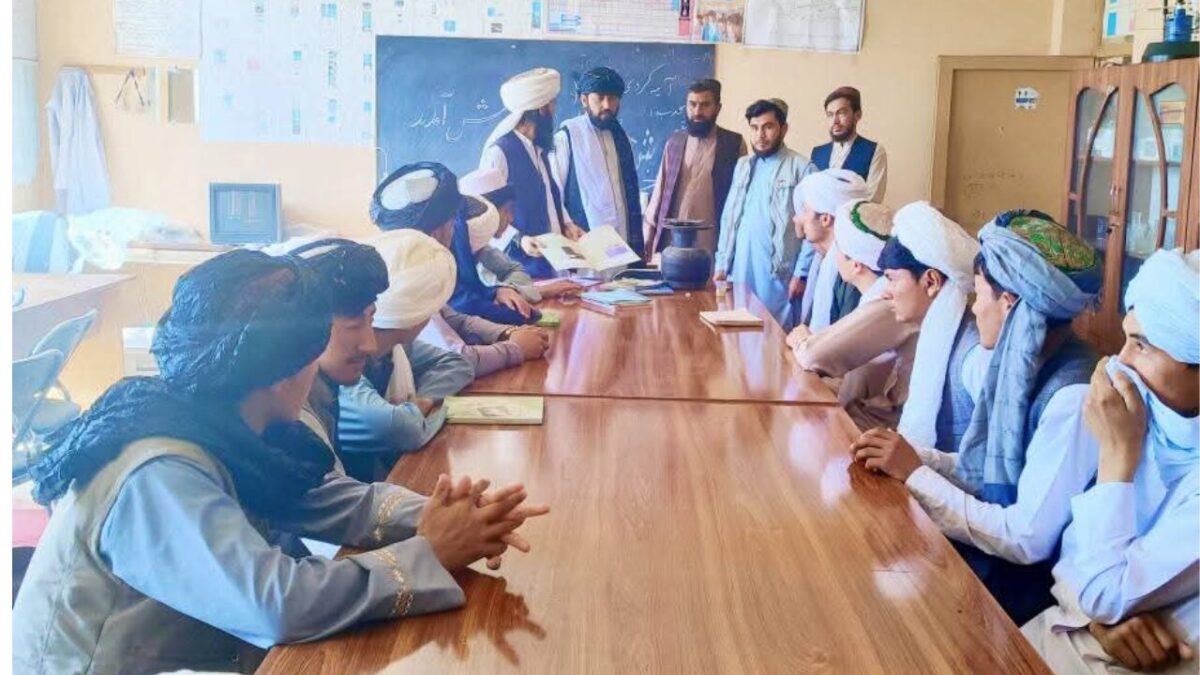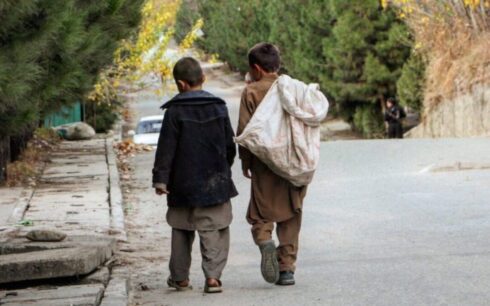Teachers in western Afghanistan say new pressures under Taliban rule, including compulsory dress codes for students, religiously driven changes to school curricula and a severe lack of supplies, are draining students’ motivation and undermining the country’s already fragile education system.
Educators speaking on condition of anonymity told Amu TV that Taliban officials are not only imposing strict rules on what students wear but also heavily policing teachers’ appearance.
“In some schools, administrators cooperate with the Taliban and will not allow us to teach without wearing a long veil,” one teacher said. “Even girls in the third through sixth grades are being forced to wear it. The Taliban have said repeatedly that the dress code must meet their standards or teachers will lose their jobs.”
She added that the combination of repressive dress codes, extreme heat, ideologically slanted lesson plans and a lack of even basic school supplies has discouraged many students from attending school. Her own eighth-grade son, she said, has expressed a desire to drop out, saying he cannot bear the enforced dress code.
Students themselves have voiced concerns over deteriorating learning environments. Many schools damaged by recent floods and earthquakes remain in disrepair, leaving thousands of children without classrooms or access to formal education.
“We used to go to school and our teacher taught us girls,” said one primary school student who declined to be photographed for safety reasons. “Now the school is closed and no one is helping. We girls have been left behind.”
In response to the worsening conditions, UNICEF — in collaboration with the Islamic Development Bank, the Saudi Fund for Development and the Afghanistan Humanitarian Trust Fund — has launched a $2.75 million project to rebuild and rehabilitate eight schools in Herat and Badghis Provinces. The initiative aims to bring 4,000 children back into safe, functional classrooms.
“We have seen in Afghanistan and elsewhere how earthquakes and other natural disasters disrupt children’s education,” said Tajudeen Oyewale, UNICEF’s representative in Afghanistan. “With this new funding, we hope children can safely return to rebuilt or refurbished classrooms.”
The Taliban have yet to respond publicly to concerns about the strict enforcement of dress codes. In previous statements, the Education Ministry defended the rules, saying the changes were intended to promote “order and discipline.”
Girls above sixth grade remain barred from school across the country — a policy that has drawn widespread international condemnation. Human rights organizations warn that if the ban persists, more than four million Afghan girls could be out of school by 2030.
Education and human rights advocates continue to urge the international community to take urgent and coordinated steps to address what they call an escalating crisis in access to education, particularly for Afghan girls.





